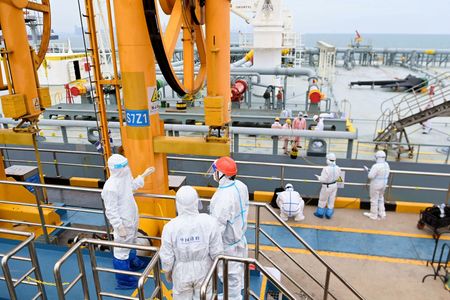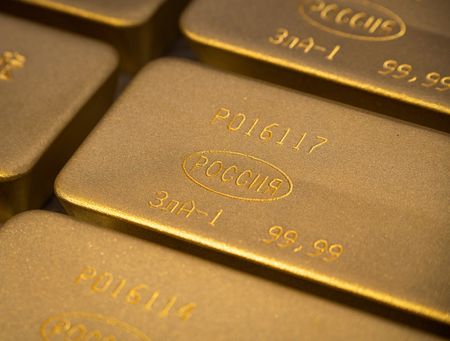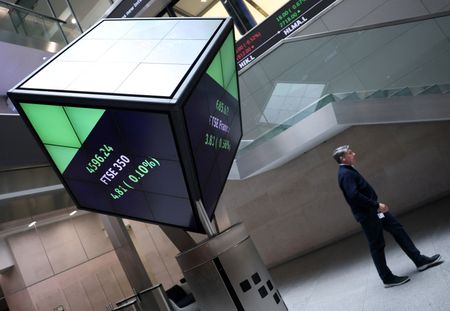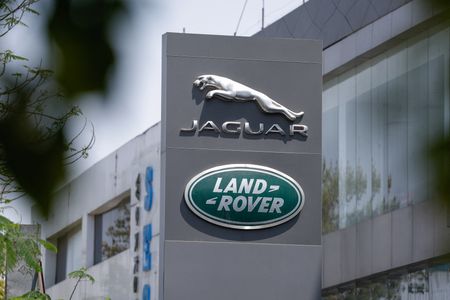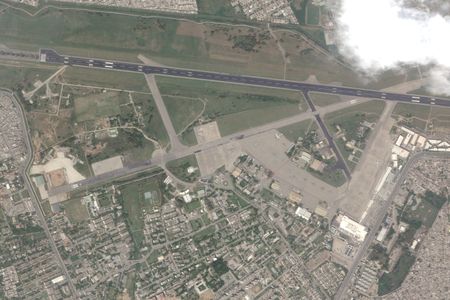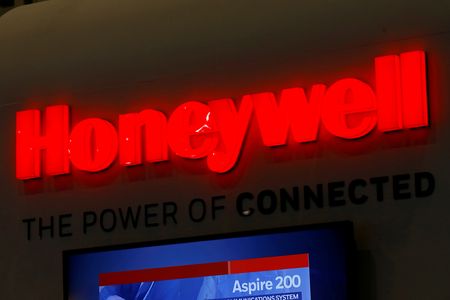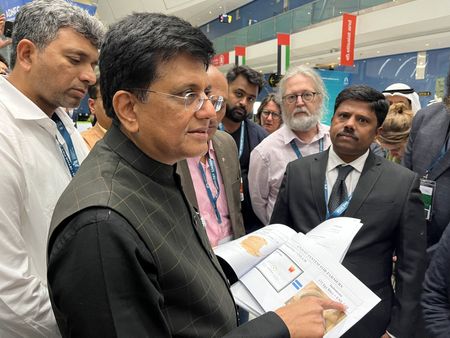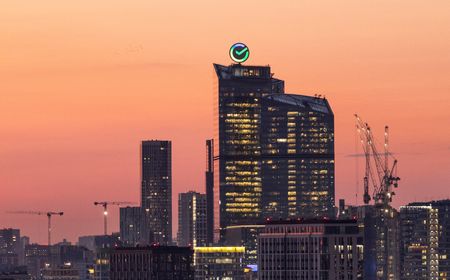By Erwin Seba
HOUSTON (Reuters) – U.S. crude oil futures climbed more than $1 a barrel on Tuesday as the White House announced Saudi Arabia’s plans to invest $600 billion in the United States.
Brent crude futures rose 88 cents, or about 1.35%, to $65.84 a barrel by 1417 GMT. U.S. West Texas Intermediate (WTI) crude was up $1.13, or about 1.82%, at $63.08.
The two benchmarks rose by about 4% or more in the previous session after the U.S. and China agreed on sharp reductions to tariffs for at least 90 days, which also boosted Wall Street stocks and the dollar.
U.S. President Donald Trump was visiting Saudi Arabia on Tuesday as part of a trip through the Middle East.
The U.S. also unveiled a defense sale agreement with Saudi Arabia worth $142 billion.
Part of the new Saudi investment will go to Saudi Aramco’s Motiva refining and petrochemical complex in Port Arthur, Texas.
The market is now evaluating the impact of the trade truce, said PVM analyst Tamas Varga.
“Coupled with the scheduled steep increase in OPEC+ supply in May and June, the upside might prove limited.”
The Organization of the Petroleum Exporting Countries (OPEC) has raised oil output by more than previously expected since April, with May output likely to increase by 411,000 barrels per day.
Meanwhile, sources told Reuters that Saudi Arabia’s crude oil supply to China will hold steady in June after hitting its highest in more than a year in the previous month after an OPEC+ decision to increase output.
It is the second-largest crude supplier to China behind Russia.
Elsewhere, signs broadly point to demand for refined fuel remaining strong.
“Despite the deteriorating outlook for crude demand, positive signals from the fuel markets cannot be overlooked,” JPMorgan analysts said in a note.
“Although international crude prices have declined by 22% since their peak on January 15, both refined product prices and refining margins have remained stable.”
Reduced refining capacity – mostly in the U.S. and Europe – is tightening gasoline and diesel balances, increasing reliance on imports and raising susceptibility to price spikes during maintenance and unplanned outages, they added.
(This story has been corrected to say Saudi Arabia plans to invest $600 billion, not million, in paragraph 1)
(Reporting by Seher Dareen in London; Additional reporting by Trixie Yap and Stephanie Kelly; Editing by David Goodman and Deepa Babington)

